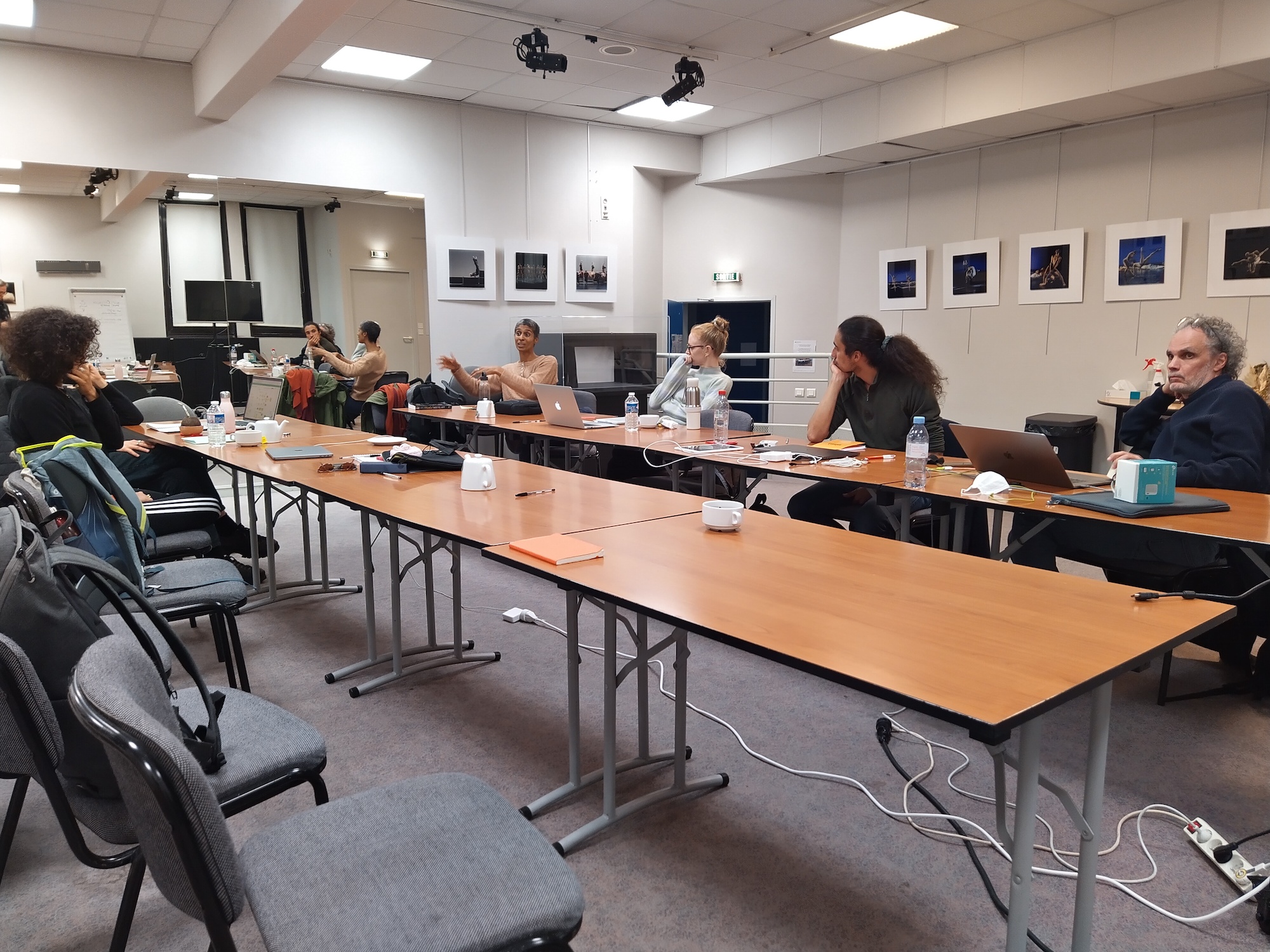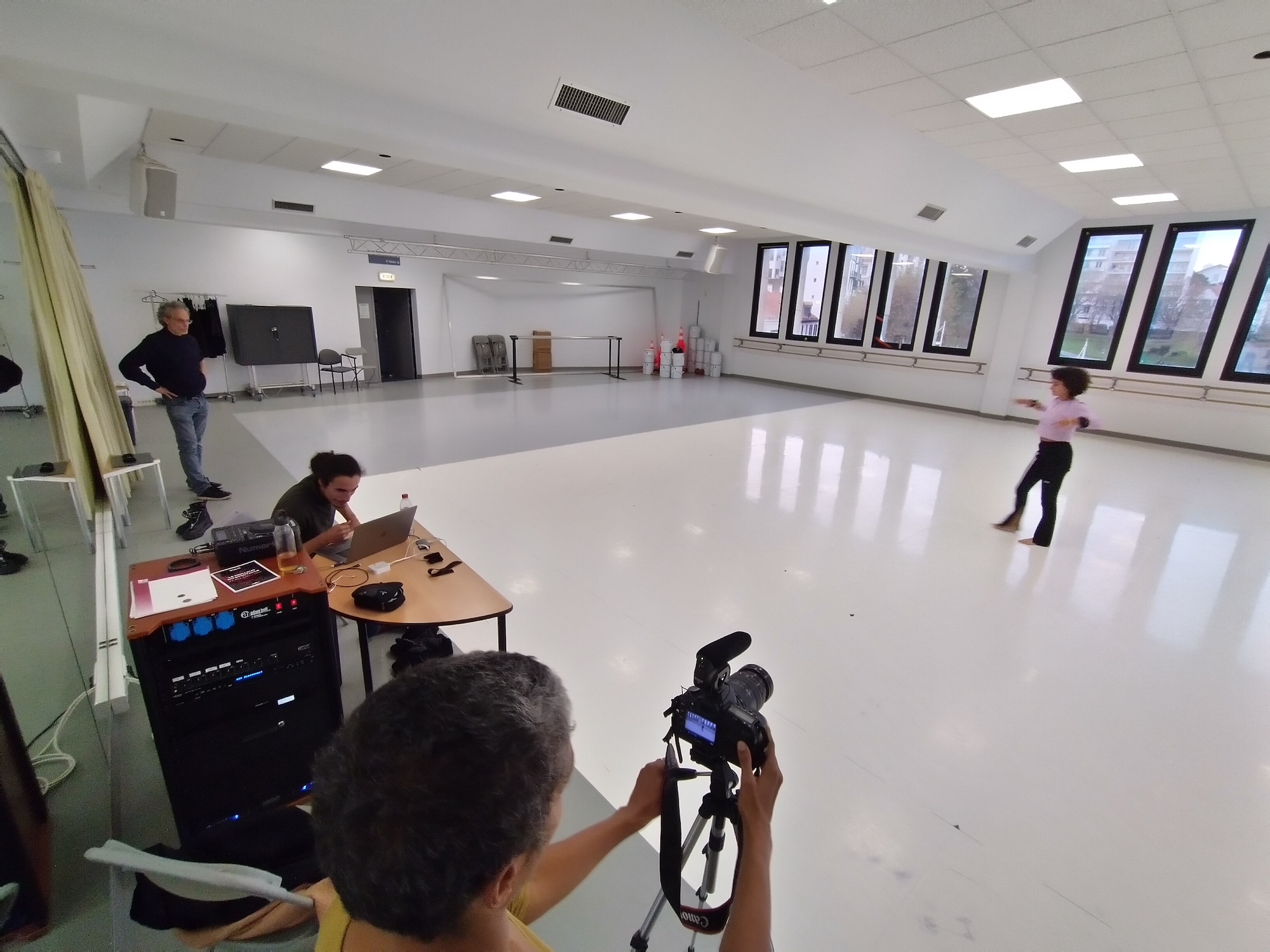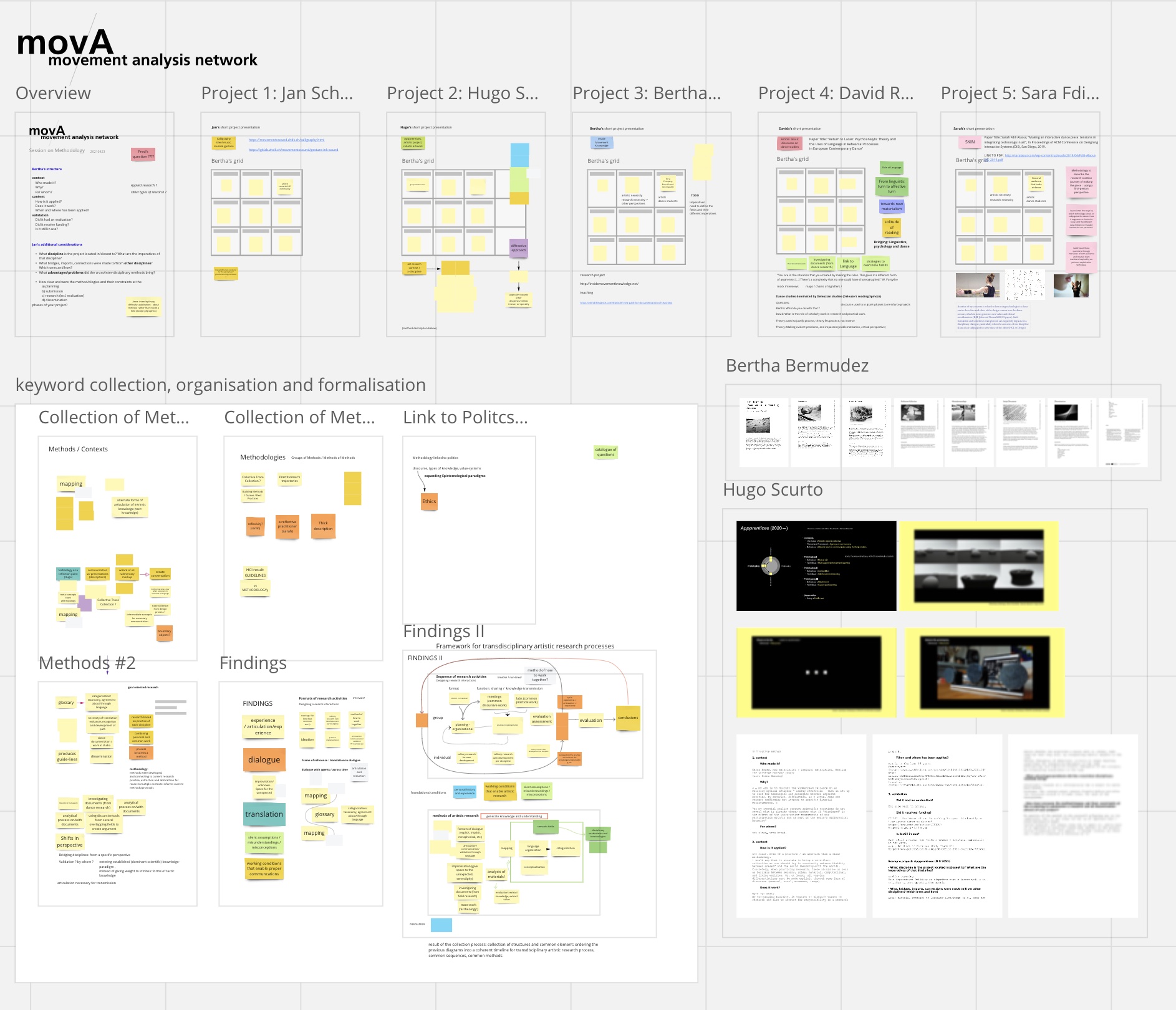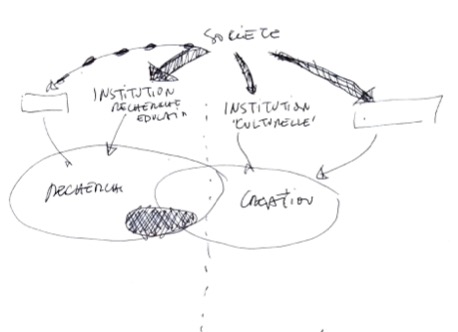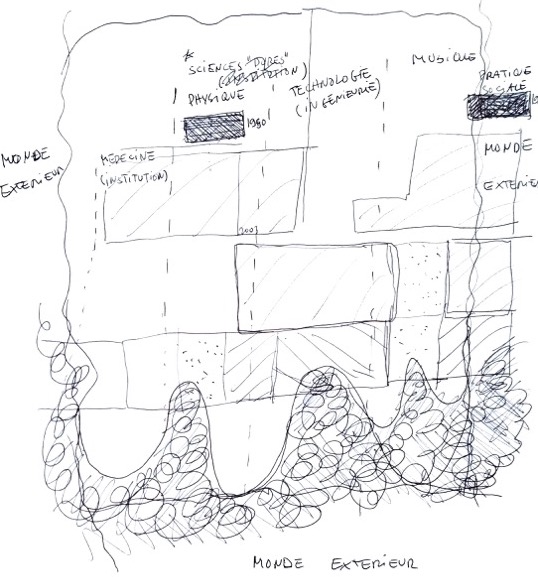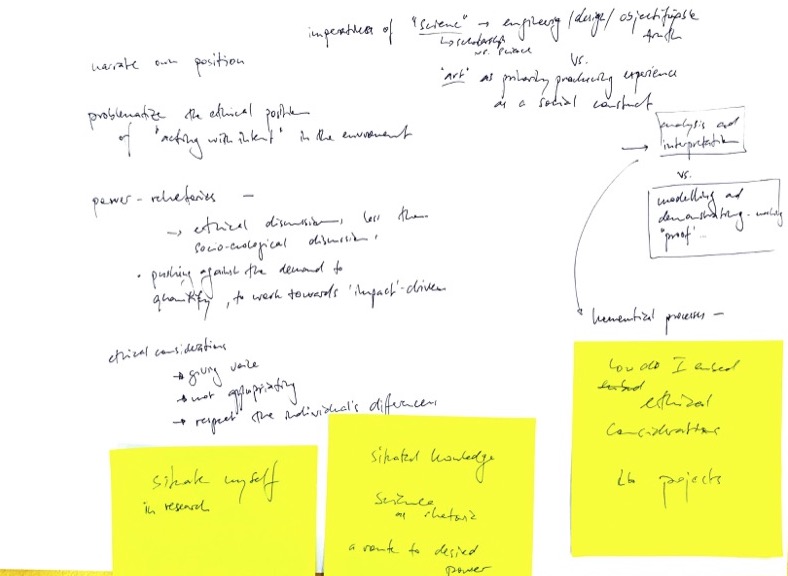Friday 19. November
The first day after the arrival we had a round of introductions from all the members present, also a check up on our projects and intentions, checked the agenda for the meeting and then moved to lunch and a nice walk to the La grande plage de Biarritz. The afternoon was divided into two blocks: the first session about Methods and the presentation of the research by Hugo Scurto.
Method session I
“Phrasing, exploring somato-auditory units” by Jan Schacher, with Bertha Bermúdez
Proposition: This small project aims at using movement sensing and simple energy-based sound mappings to explore the eternal question of segmentation or phrasing between movement and sound. I’d like to work on a protocol of exploration, with a series of prepared experiments and the expressed intent to develop a/the method. The focus lies not on human-machine interaction but more on vocabulary articulation and mapping of the field of possibilities by observation and categorisation. This includes a small choreographic development as well as work on sound-design questions, i.e., finding appropriate couplings that make the problem of articulation/coarticulation and phrasing accessible.
In addition, this process might expose the problematic of cross-domain interaction and technology dependency on a more fundamental level - why do we want to connect embodied units (semantic units as well as somato-auditory ones) through technology, is human perception in intersubjective exchanges not complex enough? Of what nature are the constraints and impositions of machine linking (including observant algorithms) and what are the unconscious biases and naïve projections (techno-optimism) that are embedded in this practice?
Thus session included the discussion documented in the video embedded above.
Presentation/demo
"Art-health project feedback"
Hugo Scurto
Proposition: Short discussion and/or a demo corner (as we did in Nantes for example) to have your feedback on an art-health project I have been working on for almost a year now.
The project basically seeks to create an "AI" model of breathing waveforms to make a soft inflating object "breathe"—or at least, to have it exhibit realistic breathing movements.
While the project opens many practice and research issues, I would be really happy to leverage our movA gathering to better understand how you situate breathing—both the action and movements which results—as practitioners and researchers in dance or music.
I could also demonstrate prototypes for the AI model and soft object in case you are interested in exchanging about the process of making and experiencing artificially-breathing things.
Saturday 20. November
Exploration workshop
"Living Archives"
Sarah Fdili Alaoui and Tove Grimstad Bang
Proposition: I would also like to take the opportunity of this group to experiment with some of the ideas that I am developing in a current research project called Living Archive. The project is about designing to keep and transmit traces of dance practices. I will be joining in the 7th of october meeting to think all together about how to organise the biarritz encounter with all the projects that are proposed and the methodologies that were previously discussed and to see what makes sense for all. I will also be joining the ethics meeting as we have already been working on this topic and would have things to suggest as well :) Lastly, I have a new phd student who just started in september on the Living Archive project, and I would love to include her in our experimentations. I hope that is good with everyone? If so I will invite her to join in Biarritz as well.
Ethics Session
Frederic Bevilacqua and Sarah Fdili Alaoui
During the meeting at Biarritz, we focused on testing a small web-based game around ethics developed by Frederic Bevilaqua and Sarah Fdili, a.o. https://bias-roulette.netlify.app/
Method session II
“Phrasing, exploring somato-auditory units”
Jan Schacher and Bertha Bermúdez
This session was the second part of the method design experiment.
Sunday 21. November
Exploration workshop
"Bii-biyelgee researchers’ score"
Bertha Bermúdez (as part of Performing Archives PhD)
Proposition: An embodied exercise based on the research done on Big-biyelgee Mongolian dance, as part of the score I am designing to be activated prior the study/browsing of documents from this dance. It is part of my PhD and would be lovely to try it out with you all.
"Methodology line"
The methodology working line focused on the search for descriptions of transdisciplinary artistic research departing from our expertise and practices as a transdisciplinary research group focused on movement/gesture, technology and sound. This line continues some aspects and trials the group has done within its meetings around the definition of terminologies (see website previous editions,2017, 2018 and 2020 meetings). During this online phase of work, we focused on collecting practices from members of the Mova group as examples to start defining modes of interactions.
We revisited our projects, looking at questions* dealing with the context, content, validation, transdisciplinarity and methodologies of research projects. The analysis and reflection upon each project were shared and presented, serving to start collecting words and connections on what transdisciplinary artistic research may mean as a methodology. Following discussions further, Jan Shcaher, Bertha Bermudez, Hugo Scruto and David Ritterhousse elaborated diagrams and descriptions suggesting a practice model be tested within the Biarritz Mova meeting.
"Ethics line"
The Ethics line consisted in sharing previous research, questions, and concrete projects dealing with the role of ethics within our research areas, focusing on issues dealing with AI and its ethical development, focusing on a transdisciplinary re-imagining of AI developer practice in the context of Smart Cities., shared by as Scott delahunta, or discussions on practice, focusing on how we situate (Haraway) our selves in our research and how do we embed ethics issues within our research projects and what are they?
